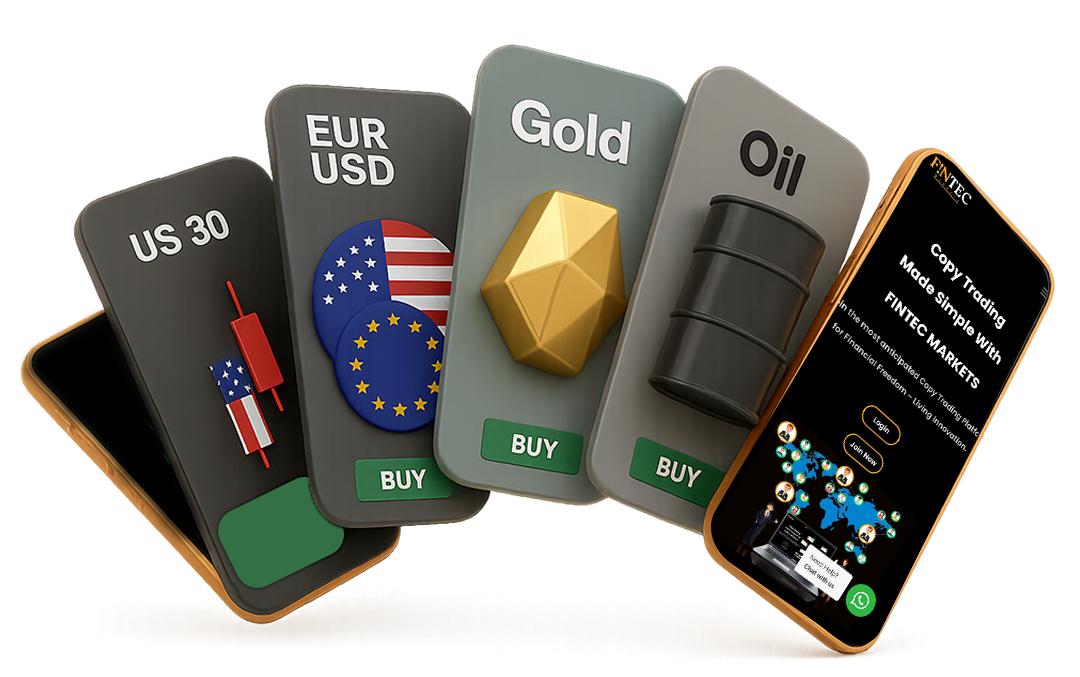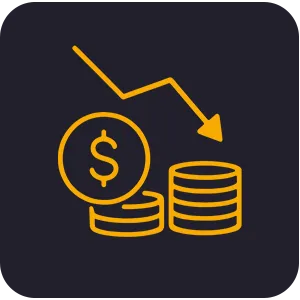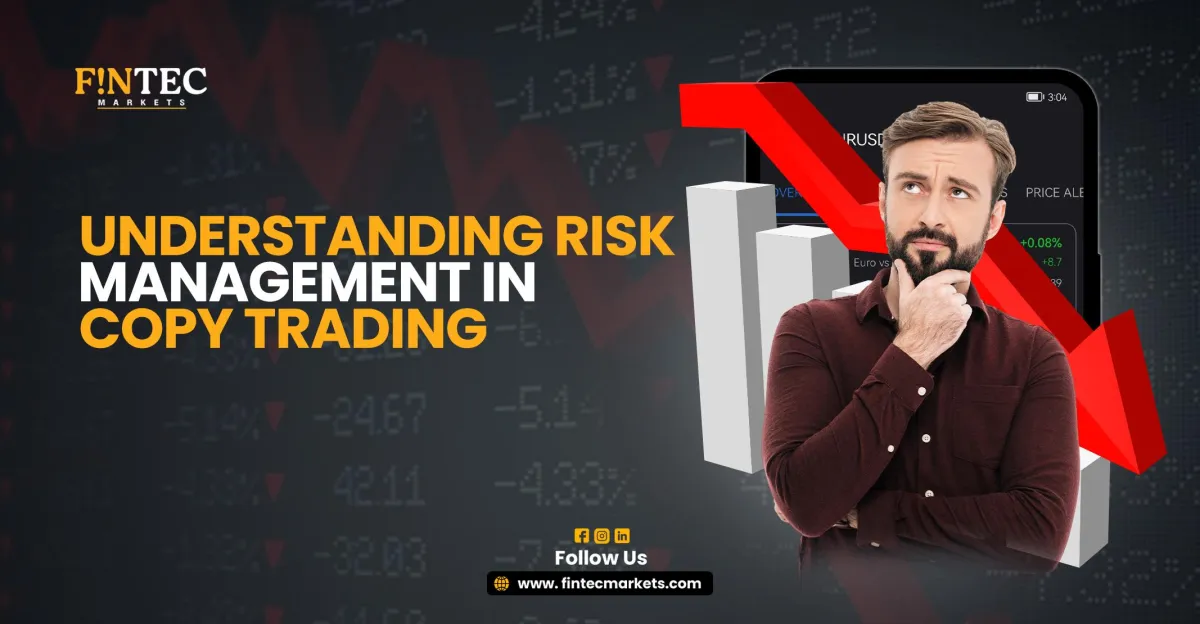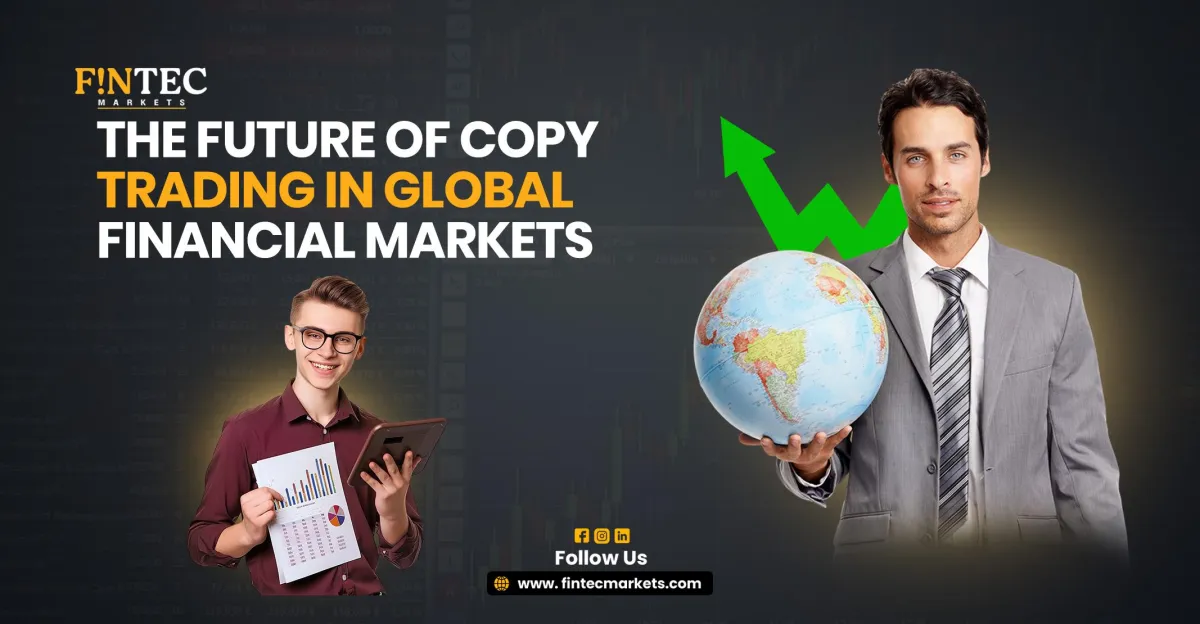Zen Doan is a business analyst, entrepreneur and media proprietor, and investor. She also known as the best selling book author.
Zen
Author
Let the Expert Trade for you
Join our leading copy trading platform for passive income. Follow our expert strategies and boost your portfolio.


Start your journey with Fintec Markets, where copy trading is simplified and risk-managed. Mirror top traders, build steady profits, and grow your portfolio with safety, confidence, and ease.





Discover how Fintec Markets makes copy trading simple, safe, and rewarding. Follow top traders, grow your portfolio with smart strategies, and enjoy peace of mind through effective risk management that helps protect your investments while maximizing potential returns

Fintec Markets empowers you to earn smarter—not harder. With our copy trading forex platform, you can mirror the strategies of top-performing traders and build steady passive income without manual trading stress.
Start small, learn from professionals, and grow your wealth confidently.
Why Choose Fintec Markets Copy Trading
No Time to Trade? Go Fintec!
Over the past four years, Fintec Markets has earned a trusted reputation in forex copy trading, empowering investors to replicate expert strategies with confidence. Our journey has been driven by innovation, precision, and strong risk management practices that protect every trade. Each market challenge has sharpened our expertise, enhanced our trading technology, and strengthened our commitment to delivering consistent, transparent results for our global trading community.

Our Traders : We have collectively executed over $100 million in forex transactions across global currency markets.

Copy Trading : Over 100 traders have achieved profitable results by mirroring top performing strategies through FintecMarkets’ copy trading platform

High ROI Performance: More Than 90% of our copy traders earn consistent returns with expert strategies on FintecMarkets.
Seamless Process
Fintec Markets, a Forex copy trading platform, is a fully automated trading system that offers real-time trade replication from expert traders with zero effort. To get started, simply register on the Broker, open a live trading account, deposit funds into your wallet, and transfer them to your MT5 account. Once completed, follow the steps below.
Select an expert Trader and click on the “follow”
Fill the form and click “connect” to join us

At Fintec Markets, we collaborate exclusively with globally regulated and reputable brokers to guarantee every trader a secure, transparent, and lightning-fast trading experience. Our broker network has been carefully selected to support seamless forex copy trading, ensuring smooth account integration, reliable execution, and complete peace of mind for our users.
Connect with our verified broker partners today and experience real-time trading
excellence backed by transparency and trust.
OUR SERVICES
We provide a comprehensive suite of trading solutions tailored to support informed and strategic decisions. From expert strategies to real-time execution, we provide everything you need to trade smarter.

Fully compatible with all MT5 accounts, our platform ensures smooth and secure copy trading.
Follow expert traders or build your own portfolio with real-time synchronization and control.
Trade confidently with MetaTrader 5, the trusted standard for Forex professionals worldwide.

Your funds always stay in your own trading account, never transferred to others.
Enjoy full transparency, independence, and control while copying expert strategies.
Grow your portfolio securely with confidence and complete visibility at every step.

Automatically mirror the strategies of professional traders in real time.
No prior experience needed to diversify, learn, and grow your portfolio effortlessly.
Trade smarter and benefit from proven expertise with full control and transparency.

Start copy trading with a small investment and unlock steady passive income.
Even with minimal capital, follow skilled traders and grow at your own pace.
It’s the simplest, most accessible way to earn consistently with controlled risk.

Experience true real-time synchronization with every trade replicated instantly.
Stay precisely aligned with expert traders for accuracy and transparency.
Enjoy a reliable, live trading experience built for speed, precision, and trust.

Deposit and withdraw funds quickly with our secure payment system.
Access your money instantly with multiple trusted transaction options.
Enjoy smooth, real-time processing that keeps your trading seamless and easy.

Fintec Care - Only the Best
At Fintec Markets copytrading platform, trust comes before every trade. That’s why Fintec Care is dedicated to building trust and protecting your capital. We thoroughly evaluate every Master Trader before they join our platform.
Only high-performing, verified traders are approved.
Built to safeguard your investments from unnecessary risk.
Performance-based selection
Each trader undergoes a strict performance review, risk assessment, and strategy analysis to ensure they meet our high standards of reliability and consistency.
Master the Art of Forex Copy Trading
Gain access to Fintec Markets free tools and expert insights that simplify forex copy trading and enhance risk management. Discover the future of copy trading and learn how to turn every market move into an opportunity for growth.

In recent years, trading has become more accessible than ever before. Thanks to technology.

Copy trading is a method that lets you automatically follow and copy the trades of experienced traders.

The financial markets are constantly reshaped by new technologies and shifting investor behavior.
TESTIMONIALS
Don’t just take our word for it – hear from investors and traders who have consistently grown their wealth through our copytrading platform. From monthly profit withdrawals to risk-controlled trading, discover why Fintec Markets is trusted by clients worldwide.
FAQ
Have questions about how copy trading works or how to get started? Our FAQ section provides clear, straightforward answers to help you make confident decisions. From account setup to trading strategies and withdrawals, explore everything you need to know for a smooth and informed trading experience.
Copy Trading allows you to automatically copy the trades of experienced traders. Once you connect your account to a professional trader’s strategy, their trades will be mirrored in your account in real-time.
No, you don’t need any prior trading experience. Copy Trading is designed for beginners and busy individuals who want to earn from the markets without actively trading themselves.
You can withdraw your profit on a monthly basis right after you receive profit withdrawal email from Fintec Markets. Your funds remain in your own trading account, and you have full control over deposits and withdrawals.
While all trading involves risk, Copy Trading with Fintec Markets gives you the option to choose top-performing traders with verified track records, helping you manage risk more effectively.

Copy Top Traders in Real Time
Easy Performance Monitoring
24/7 Global Support

Enhance Your Expertise with Weekly Fintec Markets Global Webinars

Join Fintec Markets as your trusted trading partner and experience smarter, more transparent Forex investing. Empower your journey with expert strategies, real-time performance, and complete control.
2 Frederick street, kings cross, London, united kingdom, Wc1X0ND.
Fintec Markets is operated by FINTECMARKETS LIMITED, a company registered in the United Kingdom under Registration No. 15181684. Our head office is located at 2
Frederick Street, Kings Cross, London, WC1X 0ND, United Kingdom.
For any business inquiries, partnerships, or customer support, please contact us at [email protected] or call us at +44 7888 872722 (additional contact: +44 7450 371187).
At Fintec Markets, we are committed to transparency, trust, and innovation in copytrading and financial technology services.
disclaimer
The information provided on this website is for general informational purposes only and is not intended to be relied upon as investment advice. Trading and investing in financial markets carries a high level of risk and may not be suitable for all investors. It is important to understand the risks involved before engaging in any trading or investment activity.
Please note that trading in financial markets involves a high level of risk, and past performance is not necessarily indicative of future results. The use of any trading or investment strategy is at the user’s sole discretion and risk. Fintec Markets makes no representation or warranty regarding the accuracy, reliability, or completeness of any information provided on this website or any trading or investment activity conducted through our platform
Users should carefully consider their financial situation, investment objectives, and risk tolerance before engaging in any trading or investment activity. Users should also seek independent financial and/or legal advice before making any investment decision. Fintec Markets is not liable for any loss or damage that may arise directly or indirectly from the use of any information provided on this website or any trading or investment activity conducted through our platform.
Please be aware that we do not provide investment advice, and any decision to engage in trading or investment activity is at the user’s sole discretion and risk. Furthermore, we do not guarantee any profit or loss, and any profits are subject to market fluctuations and risks associated with financial trading. Users should only use funds that they can afford to lose, and Fintec Markets is not liable for any losses incurred by users.
We recommend that users carefully read and understand our terms and conditions, risk disclosure, and privacy policy before engaging in any trading or investment activity through our platform. By using our platform, users agree to all terms and conditions, risk disclosure, and privacy policy.
©2026 Fintecmarkets Inc. All rights reserved. Designed with care.